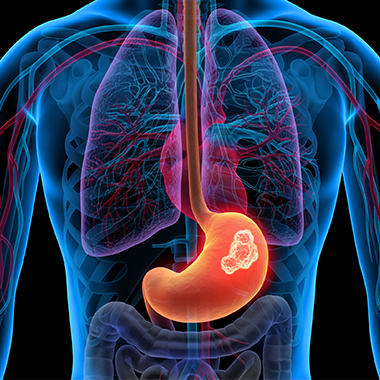Leading providers of surgery and treatments for stomach cancer and staging laparoscopy
Patients with stomach cancer benefit from our prehabilitation programme and the advantages of the ERAS® protocols for optimal recovery.
The extensive experience of our team of surgical oncologists in minimally invasive surgery and stomach surgery makes IVOQA the leading facility for stomach cancer surgery and treatment.
The treatment of stomach cancer by highly specialised teams is crucial for achieving the best oncological and survival outcomes for our patients.

